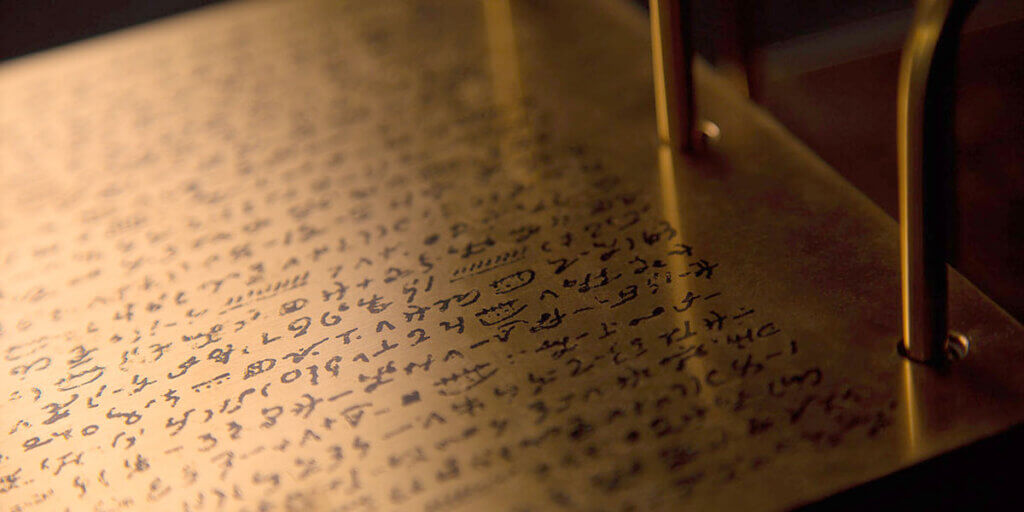Is anyone paying attention to the fact that so far we have received only “a lesser part of the things which he [Jesus] taught the people”—that since the prophet Joseph Smith we have been on trial to see if we will believe the things that have been extended to us (3 Nephi 26:6–11)? If not, isn’t it time to consider our options, especially as the world spirals into gross wickedness?
The fact that “the greater things” are still “withheld” means we haven’t yet “believed” what we have received and therefore remain in a state of “condemnation” (3 Nephi 26:10). Says the Lord, “All they who receive the oracles of God, let them beware how they hold them lest they are accounted as a light thing, and are brought under condemnation” (Doctrine & Covenants 90:5).
Or, even more succinctly: “Your minds in times past have been darkened because of unbelief, and because you have treated lightly the things you have received” (Doctrine & Covenants 84:54). In that case, would a people with minds “darkened because of unbelief” even be capable of perceiving they are under the condemnation these and other scriptures say concerning us?
Would a person obsessed with defending the idea that all is well in Zion—with following and expecting others to follow a politically correct narrative that frowns upon questioning anything that might reflect on the status quo—be open to the need of coming out from condemnation when the very idea of condemnation exists beyond the day-to-day reality in which they live?
Suffice to say that of “the greater portion of the word” of God, which Alma equates with “his mysteries” (Alma 12:10–11), exists. Of these, Nephi says, “He that diligently seeketh shall find; and the mysteries of God shall be unfolded unto them, by the power of the Holy Ghost, as well in these times as in times of old, and as well in times of old as in times to come” (1 Nephi 10:19).
Such receptive souls would surely embrace the greater portion of his word when the Lord sends “righteousness . . . down out of heaven; and truth will I send forth out of the earth . . . to sweep the earth as with a flood, to gather out mine elect from the four quarters of the earth” (Moses 7:62). The Plates of Ether fall in the category of one such truth. Said the Lord in Ether 4:6–7:
“They shall not go forth unto the Gentiles until the day that they shall repent of their iniquity, and become clean before the Lord. And in that day that they shall exercise faith in me . . . even as the brother of Jared did, that they may become sanctified in me, then will I manifest unto them the things which the brother of Jared saw, even to the unfolding unto them all my revelations.”
While some Ephraimite Gentiles will thus evidently believe sufficiently in the lesser portion of his word in order to qualify for the greater things, what of those who don’t? Hence, the attached caution: “He that will contend against the word of the Lord, let him be accursed; and he that shall deny these things, let him be accursed; for unto them will I show no greater things” (Ether 4:8)?
As a case in point, if Isaiah complains of our day that the words of his vision are not being “proclaimed” to the world (Isaiah 48:6), what of the legacy left behind by those who say, “We have enough,” when “from them shall be taken away even that which they have” (2 Nephi 28:30)? Aren’t Isaiah’s words, which Jesus calls “great” (3 Nephi 23:1), a key to the greater things?



